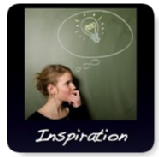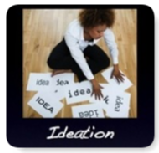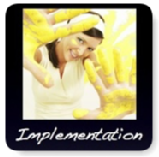All entries for Wednesday 21 December 2011
December 21, 2011
3 essential elements for an e–learning strategy
I had a meeting this morning with someone who is planning to write an e-learning strategy for their department. He asked me for recommendations. I have three essential points:
- As a policy, provide lecture notes (not necessarily detailed), summaries, agendas etc for every event (lectures, seminars, assignments) in a form that can be owned/curated by each individual student, and annotated and extended. Digital course packs are only the start. As a rule, provide supporting material for everything. And get students to create similar material for the things that they do (ie seminar presentations). Whatever learning, communications and admin platforms are used, make sure they produce these outputs. Format? PDF - there are many great PDF annotation tools. Packaging? Not so sure. Evernote notebooks provide a good model. They can be zipped and distributed. But whatever, make sure that everyone is doing this all of the time!
- Try to define the kinds of behavior, techniques and supporting technologies that students can use to get the most out of the experience. Perhaps create a set of accounts explaining how a student might work with technology to optimise their performance. For example, describe how digital coursepacks and other PDFs can be accessed, used and annotated, and organised. Don't treat this as isolated gadgetry and skills, but rather as joined-up workflows.
- Get academics more involved by giving them technologies that they can trust and which give them assured and instant access to all of the resources that they might need when teaching and (important and) doing research. A mobile device with a well organised store of images, videos, texts etc AND some means of displaying (eg an iPad with a VGA connector). Reduce dependencies on networks and systems. Make them more robust and self-reliant.
Document and image collaborative annotation with iversity
Follow-up to iAnnotate for iPad, annotate PDFs, mark essays on screen from Inspires Learning - Robert O'Toole
iversity is an open-access VLE/VRE in which anyone can assemble a course or a conference (interesting to see the parallels between an academic course and a conference). It is explicitly aimed at higher education. The "stripped-down" nature of the feature-set and the interface is significant. After all, what is really needed for successful academic collaboration? You get a calendar, the ability to upload files and discuss them, and a report on all user actions related to the course.
It's all actually very clear and simple. Which is what most people want most of the time - with the addition of one more sophisticated feature, perhaps the only area of complex interaction that academic work needs (outside of subject specific technologies such as lab equipment): what iversity call 'social reading'. Annotating texts and images with comments.
I'm not claiming that this is a perfect solution. It is browser based. It is very much an old-fashioned web site plus collaboration. Increasingly (thanks to Kindle, iTunes, iAnnotate etc) we expect to be building our own personal collections of owned/curated objects. That's a very different design pattern, user experience and ideology. When I work on an academic aretfact I want to have my own copy of it. That comes first (whether in the classroom or online). I then want to be able to annotate and extend my copy. In some circumstances I want to share those annotations and extensions, or incorporate the ideas of others in my own copy. But at the end of the day I want my own artfact to own containing my own work.
Here's a video demonstrating their implementation:
 Robert O'Toole
Robert O'Toole

 Please wait - comments are loading
Please wait - comments are loading



